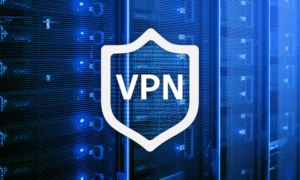Introduction
In this brand new virtual age, maintaining online privacy and security has become increasingly vital. With the upward push in cybercrime and surveillance, it is vital to protect your online identification from prying eyes. One powerful device that allows you to do just that could be a Virtual Private Network (VPN). In this newsletter, we can delve into the secrets and techniques of VPNs and explore how they could efficiently preserve your online identity. So, let’s dive in and resolve the mysteries of BestVpn!
Unmasking the Secrets: How VPNs Work
What is a VPN?
A VPN, or Virtual Private Network, is a technology that creates a stable and encrypted connection over a public network. By using a VPN, your internet traffic is routed via an encrypted tunnel, making it difficult for all of us to intercept or decipher your statistics.
How does a VPN keep your online identity hidden?
When you connect to a VPN server, your internet traffic is encrypted and routed through that server. This process masks your authentic IP address and replaces it with the IP address of the VPN server. As a result, your online activities become virtually untraceable, as they seem to originate from the VPN server in preference to your actual location.
Encryption: The Key to Privacy
One of the essential functions of VPNs is encryption. VPN protocols use advanced encryption algorithms to scramble your records, making them unreadable to all of us trying to intercept them. This guarantees that your sensitive records, consisting of passwords, credit card information, and private messages, remain secure and protected from capability threats.
Anonymity and Privacy
By hiding your IP address and encrypting your net visitors, a VPN provides you with a cloak of anonymity. Websites and online services you go to will only see the IP address of the VPN server, making it difficult for them to track your online activities. Additionally, your Internet Service Provider (ISP) is not able to display or log your browsing history, maintaining your privacy.
Bypassing Geo-regulations and Censorship
Another advantage of using a VPN is the capability to bypass geo-restrictions and censorship. With a VPN, you may get access to content and web sites that may be blocked or constrained in your region. By connecting to a VPN server positioned in a unique U.S. region, you can look like you’re browsing from that region, granting you access to place-specific content and offerings.
The Advantages of Using a VPN
Enhanced Security on Public Wi-Fi
Public Wi-Fi networks, together with those observed in cafes, airports, and inns, are regularly unsecured and vulnerable to cyberattacks. By using a VPN, you can protect your statistics from potential hackers or eavesdroppers on these networks. The encryption furnished via the VPN ensures that your sensitive statistics remain stable, even when connected to a public Wi-Fi hotspot.
Protection Against ISP Monitoring
Internet Service Providers (ISPs) have the capability to monitor and track their customers’ online activities. This increases concerns about privacy, as ISPs can probably sell or misuse your browsing statistics. By utilizing a VPN, your internet site visitors are encrypted, stopping your ISP from tracking your online behavior and retaining your privacy.
Torrenting Safely and Anonymously
Torrenting is a popular method of sharing files online. However, it comes with its own set of risks, as it exposes your IP address to different users inside the swarm. Using a VPN even while torrenting permits you to mask your IP address and download files anonymously, reducing the possibilities of being targeted by copyright trolls or receiving DMCA notices.
Remote Access and Secure Communication
VPNs aren’t restricted to non-public use; they additionally provide advantages for agencies and far-flung workers. With a VPN, personnel can securely get entry to their organization’s network from everywhere, ensuring a secure connection and protecting sensitive business data. Additionally, VPNs enable secure communication between individuals in remote groups, safeguarding personal statistics and fostering collaboration.
FAQs (Frequently Asked Questions)
Q: Are VPNs criminal?
A: Yes, VPNs are a felony in most countries. However, it’s crucial to note that the legality of VPN usage may additionally vary depending on your jurisdiction. While VPNs themselves are prison gear, their utilization for unlawful sports isn’t always condoned.
Q: Can I use a VPN on my telephone?
A: Absolutely! VPNs are available for a huge range of gadgets, such as smartphones and capsules. You can easily download VPN programs from legitimate providers and revel in the blessings of stable browsing on your cellular devices.
Q: Do VPNs slow down net speed?
A: While it’s genuine that the usage of a VPN may additionally slightly decrease your net speed, the impact is regularly negligible. The encryption and routing procedures involved in a VPN can add a small overhead, but with first-rate VPN services and fast internet connections, the rate discount is generally minimal.
Q: Can a VPN protect me from malware and viruses?
A: VPNs on the whole consciousness on securing your net connection and shielding your data from interception. While they are able to provide a further layer of protection, VPNs aren’t designed to protect towards malware or viruses. It is crucial to apply reliable antivirus software program and practice safe surfing conduct to stay covered from such threats.
Q: Are all VPNs similarly stable?
A: Not all VPNs are created same in terms of security. It is crucial to select a reputable VPN issuer that prioritizes consumer privacy and employs strong encryption protocols. Look for VPNs which have a strict no-logs policy and feature passed through impartial protection audits to ensure the highest degree of security.
Q: Can I use a loose VPN instead of a paid one?
A: While there are unfastened VPN services to be had, it is vital to workout caution while choosing a loose VPN. Free VPNs frequently have barriers, which include data caps, slower speeds, and potential privateness worries. Paid VPN offerings commonly offer more dependable and steady alternatives, ensuring a better common experience.
Conclusion
In a global where online privacy is constantly beneath hazard, VPNs function a powerful device to guard your online identification and keep your touchy data steady. By encrypting your net site visitors and masking your IP address, VPNs offer anonymity, more advantageous safety, and the capability to pass restrictions. Whether you’re browsing the internet, getting access to public Wi-Fi, or working remotely, a VPN offers peace of thoughts and ensures that your online activities continue to be hidden from prying eyes. Embrace the power of VPNs and take control of your on line privateness these days!



































